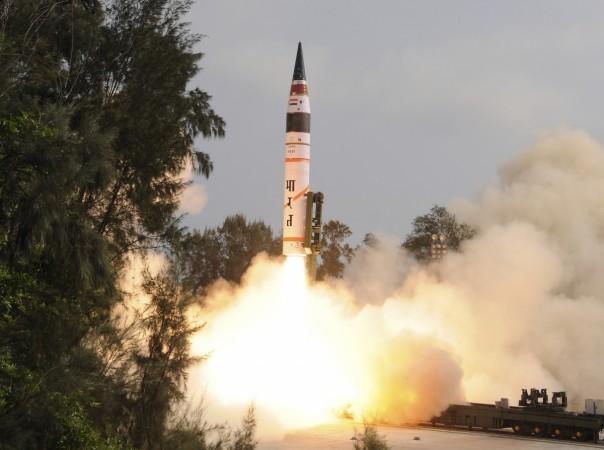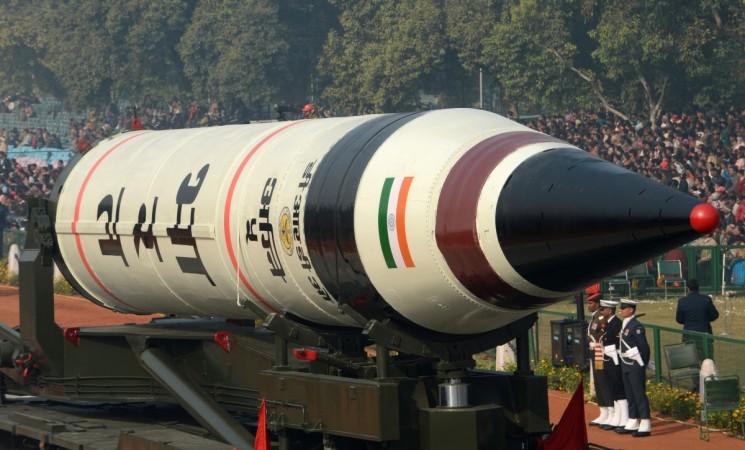At a time when India and China are at stark confrontation over the Sikkim border dispute, a new report assessing India's nuclear capabilities has revealed details that would certainly amplify concerns of the Communist giant. According to the report, India is modernising its nuclear arsenal with an increased focus on China.
In the report, titled "Indian nuclear forces, 2017," two American experts – Hans M Kristensen and Robert S Norris – wrote that India is currently developing new missiles that can target all of China with nuclear warheads. According to them, India may have approximately 600 kilogrammes of weapon-grade plutonium, enough for 150–200 nuclear warheads. However, the country has apparently produced only 120–130 warheads.
"While India has traditionally been focused on deterring Pakistan, its nuclear modernisation indicates that it is putting increased emphasis on its future strategic relationship with China," the experts said in the report. "That adjustment will result in significant new capabilities being deployed over the next decade that may influence how India views nuclear weapons' role against Pakistan."

Noting that India is developing several new nuclear weapons, the experts estimated that New Delhi currently operates seven nuclear-capable systems, including two aircraft, four land-based ballistic missiles and one sea-based ballistic missile. The country is also working on at least four more systems with long-range land- and sea-based missiles that could be deployed within the next decade.
India's new missiles will reach all of China
India currently has four land-based nuclear-capable ballistic missiles, including the short-range Prithvi-2 and Agni-1, the medium-range Agni-2, and the intermediate-range Agni-3.
The Agni-2, which can carry a nuclear warhead for over 2,000 kilometres, is probably targeted at western, central and southern China. The Agni-3, on the other hand, is capable of delivering a nuclear warhead to 3,200-plus kilometres, allowing India to deploy it further back from the Pakistani and Chinese borders.

According to the report, India is currently working on the Agni-4 – "a two-stage, solid-fuel, rail-mobile intermediate-range ballistic missile" – which can deliver a single nuclear warhead to 3,500-plus kilometres. Although the Agni-4 will be capable of reaching targets in nearly all of China from north-eastern India, the country is also developing the longer-range Agni-5, a near-intercontinental ballistic missile (ICBM), which can carry a warhead for more than 5,000 kilometres.
"The extra range will allow the Indian military to establish Agni-5 bases in central and southern India, further away from China," the experts said, adding that India has also likely begun development of a full-fledged ICBM, known as Agni-6, with a speculated strike-range of 8,000–10,000 kilometres," the report said.
How long will India adhere to no-first-use policy?
India has a firm no-first-use policy with regards to nuclear weapons, meaning it will only use them in retaliation. However, this policy was weakened after India decided to potentially use nuclear weapons in response to chemical or biological attacks.
During the 2016 dispute with Pakistan, the then-Indian defence minister Manohar Parrikar also said that India should not "bind" itself to the no-first-use nuclear policy. Although the Indian government later distanced itself from the minister's remarks saying that it was his personal opinion, considering India's volatile relationship with Pakistan and China, possibilities of a nuclear war cannot be ruled out.

















